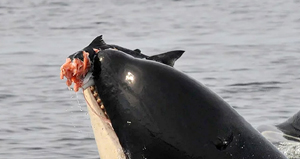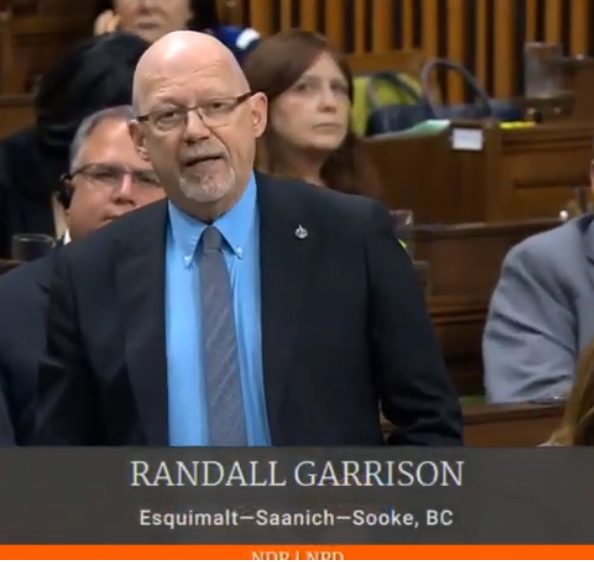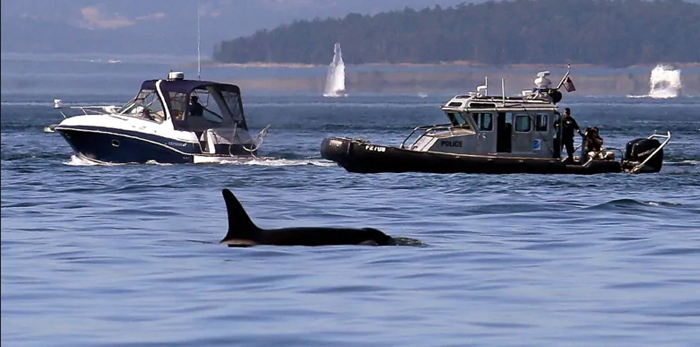
Tuesday, May 14, 2019 ~ SOOKE / OTTAWA
~ West Shore Voice News
Why does the federal government’s Southern Resident Killer Whale (SRKW) recovery program include no mandatory measures to curb freighter and oil tanker traffic across the Swiftsure Bank habitat of that marine mammal species?
That was the question posed by Randall Garrison, MP (Esquimalt-Saanich-Sooke) in the House of Commons on Monday, May 13.

“SRKW are under immediate threat of extinction, yet the government’s recovery plan announced Friday lacks urgency and fails to take on the major threat to the SRKW from oil and other shipping interests,” said Garrison. “While the government has banned local small craft from the Swiftsure Bank, the most critical area of SRKW habitat where they spend one-third of their time, it will continue to allow more than 13,000 freighters and oil tankers to transit the bank,” said Garrison, who has followed this issue in his constituency for years.
See Garrison’s May 13, 2019 Question to the Liberal Government on YouTube
With the Liberal’s recovery plan clearly ignoring the real culprits of large oil tankers and freighters, Garrison asked: “Will the government take immediate action to realign the commercial shipping lanes to move the major noise and pollution threats away from the Swiftsure Bank?”
The SRKW’s are under threat from more than just increased tanker traffic. They face deterioration in their natural environment including from large scale noise pollution. There is a serious decline in their primary food source, Chinook salmon, which currently the federal government is trying to stave off with recreational fishing bans this spring and summer.
But Garrison says that’s not the right approach. “The current coastal protection measures by the Liberals would do exactly nothing to enhance Chinook salmon stocks along the coast, or support local initiatives working to put more fish in the water,” he said.

“The recreational and sport fishing industries have always provided the core of donors and volunteers for local habitat and fisheries enhancement programs. But now fishing communities on Vancouver Island are being hit hard by fisheries restrictions and can’t continue to be the only ones trying to increase fish stocks,” added Garrison
“No local angler wants to catch the last salmon or see the orcas go extinct.”
Garrison called on the government to “immediately increase its announced totally inadequate commitment of $142 million over five years, to at least $142 million annually for habitat restoration and salmon enhancement” as a way to save all three struggling communities: the whales, the chinook, and the local fishing industry and culture on Vancouver Island.


